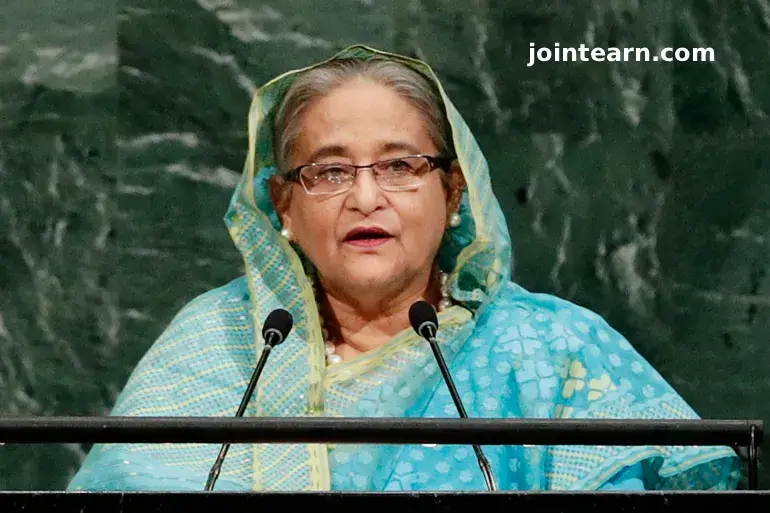
Bangladesh has been gripped by widespread unrest and violence as the country prepares for a court verdict against former longtime Prime Minister Sheikh Hasina. Her party, the Awami League, has called for a nationwide “lockdown” in protest, escalating tensions across the nation.
Schools and Transportation Disrupted Amid Unrest
In Dhaka and other major cities, schools switched to online learning on Thursday due to severe transport disruptions. The country has witnessed a sharp increase in violent incidents, including attacks on public infrastructure and government buildings, ahead of the impending court decision.
Authorities reported 32 crude bomb explosions on Wednesday, with dozens of buses set ablaze across multiple districts. On Thursday night, two additional crude bombs detonated near Dhaka airport, though no casualties were reported.
Government Increases Security Measures
The interim government, led by Nobel Peace Prize laureate Muhammad Yunus, has deployed 400 soldiers from the paramilitary Border Guard Bangladesh (BGB) to maintain order in the capital. Checkpoints have been reinforced, and public gatherings heavily restricted to prevent further escalation.
Recent attacks include a firebomb thrown at a government office in Gopalganj, Hasina’s ancestral home, and the torching of a Grameen Bank office in eastern Bangladesh. Police have arrested dozens of Awami League supporters for alleged involvement in these acts of violence.
Sheikh Hasina on Trial
Hasina, who fled to India last August amid deadly antigovernment protests, is currently being tried in absentia for crimes against humanity. She denies wrongdoing, asserting that the trial is politically motivated.
The 78-year-old former prime minister is accused of orchestrating violent crackdowns on demonstrations triggered by a controversial government job-quota system. United Nations estimates suggest that as many as 1,400 people may have died during these protests.
Historical Context and Political Legacy
Sheikh Hasina, daughter of Bangladesh’s founding father Sheikh Mujibur Rahman, first became prime minister in 1996 following a pro-democracy movement that ousted military ruler Hossain Muhammad Ershad. After a hiatus, she returned to power in 2009, ruling for 15 years until her government was toppled last August.
Human rights organizations have criticized Hasina’s second tenure as increasingly autocratic, citing arrests, disappearances, and extrajudicial killings. Muhammad Yunus, the interim prime minister, has described inheriting a “completely” broken political system and vowed to implement reforms.
Upcoming Referendum and Elections
On Thursday, Yunus announced a national referendum on a charter signed last month, to be held simultaneously with parliamentary elections in February. While his interim government has pledged to end state violence, reports by Bangladeshi rights group Odhikar indicate that impunity and abuses continue to persist.
The Road Ahead
With the court verdict expected on Monday, tensions remain high across Bangladesh. The combination of political instability, ongoing violence, and unresolved human rights concerns has left the nation on edge, highlighting the challenges of ensuring justice while maintaining public order.


Leave a Reply